What makes Jersey tomatoes the best?
Ask almost anyone in New Jersey why tomatoes grown in the Garden State are the best in the country and you’ll get a wide range of reasons. Some say they’re juicier, sweeter, riper, it’s something about the soil and the proximity to the ocean. And, of course, they’re fresher.
“You just can’t wait for the end of the summer season to find one,” says Frank Kallop, of Somers Point, who was buying tomatoes recently at Santori’s Produce in his hometown.
So what is it about Jersey tomatoes that sets them apart from tomatoes grown in other parts of the country?
To the surprise of many, nothing, other than its location, according to Ron Hutchison, agricultural sustainability professor at Stockton University.
“What makes Jersey tomatoes special is the fact that they’re produced locally,” Hutchison said at the Stockton Sustainability Farm, in Galloway Township. “When you get a Jersey tomato, it’s coming, most likely, from a farm that’s nearby, and it’s picked at its freshest.”
Yes, he explains, the soil is important, the variety of tomato is important, but the real reason is that it’s fresh, not shipped from across the country or across the world.
That specific variety of tomato known as the Jersey tomato is actually the “Rutgers,” so named because it was originated by Rutgers University and the Campbell Soup Co. in the late 1920s and 1930s.
While the tomato developed by Rutgers gained popularity with consumers, commercial farmers in the 1960s found it difficult to ship the thin-skinned fruit (yes, it is a fruit in botanical terms). The cultivar, a plant variety produced in cultivation by selective breeding, was not as good as the original, at least by consumer standards, and the tomato fell out of popularity. Years later, in 2011, Rutgers re-created the original Jersey tomato with “descendant” seeds obtained from Campbell Soup.
Rutgers is still working on ways to build a better tomato today that can withstand the climate and growing conditions in New Jersey.
At the Stockton farm, they’re looking into new ways to grow tomatoes with a focus on sustainability. To that end, the farm is largely powered by solar panels; water used to irrigate crops is from rain collected in storage basins. The farm also uses mobile greenhouses with wheels at the base that can be moved during different parts of the growing process.
For Joseph Procacci, who’s been farming tomatoes commercially for over 20 years in South Jersey, sustainability is a major concern for the future of farming. The growing practices he employs for his “Santa Sweet” tomatoes have changed to ensure a future in New Jersey he believes is threatened by climate change.
“I have definitely noticed a change in climate”, he says. “Over the past five to seven years we have seen a steady increase in our summertime temperatures. Having nights that don’t make it into the 60’s is a real challenge for us and our crops.”
Along with that increase in temperatures. Procacci says there has also been an increase in rain.
To combat climate change at his Santa Sweet farm near Millville, Procacci has installed 25 acres of high tunnel farming technology similar to Stockton’s, a system of open green houses that can help regulate rainfall and temperatures, and cut down on the use of fertilizer and additives for the crops.
Even before that, tomatoes had a colorful start in New Jersey.
According to local lore, Colonial Robert Gibbon Johnson, a gentleman farmer, ate a box of tomatoes on the steps of the Salem County Courthouse, in 1820, to prove to doubting farmers that they were not poisonous.
So even though we’d love to say there’s something special about our Jersey tomatoes, it just may be a myth.
“We do want them to be different,” Hutchison adds.
But if that’s the case, it’s not a myth we’re likely to stop believing in anytime soon.
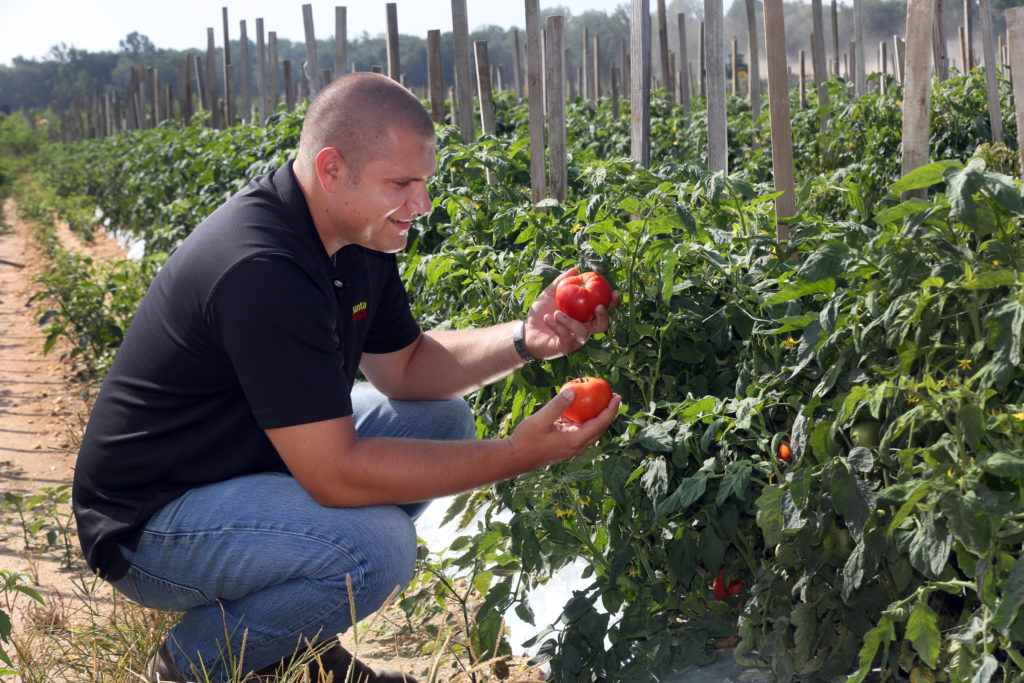
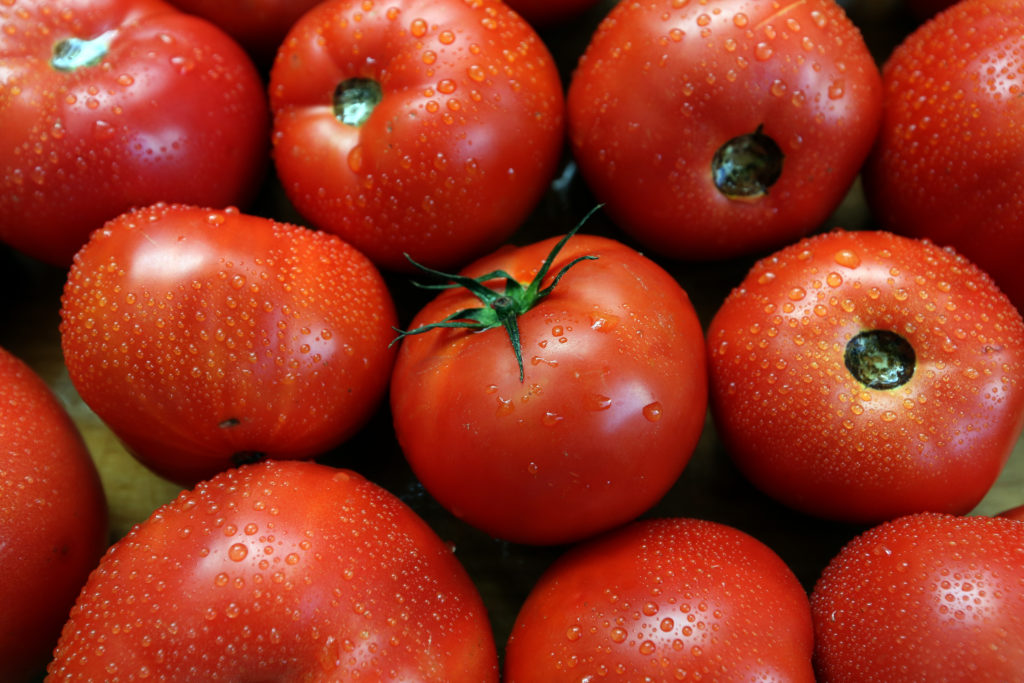
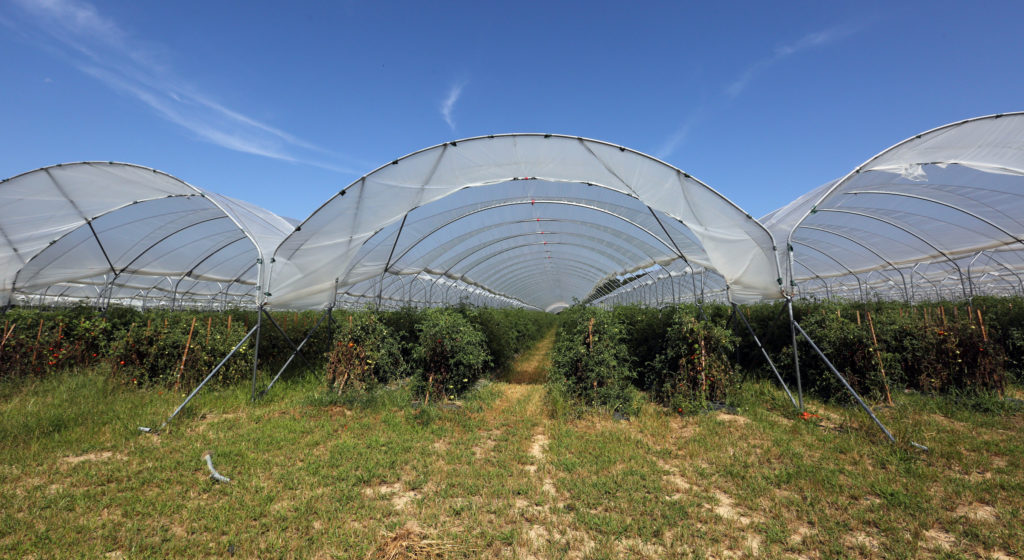
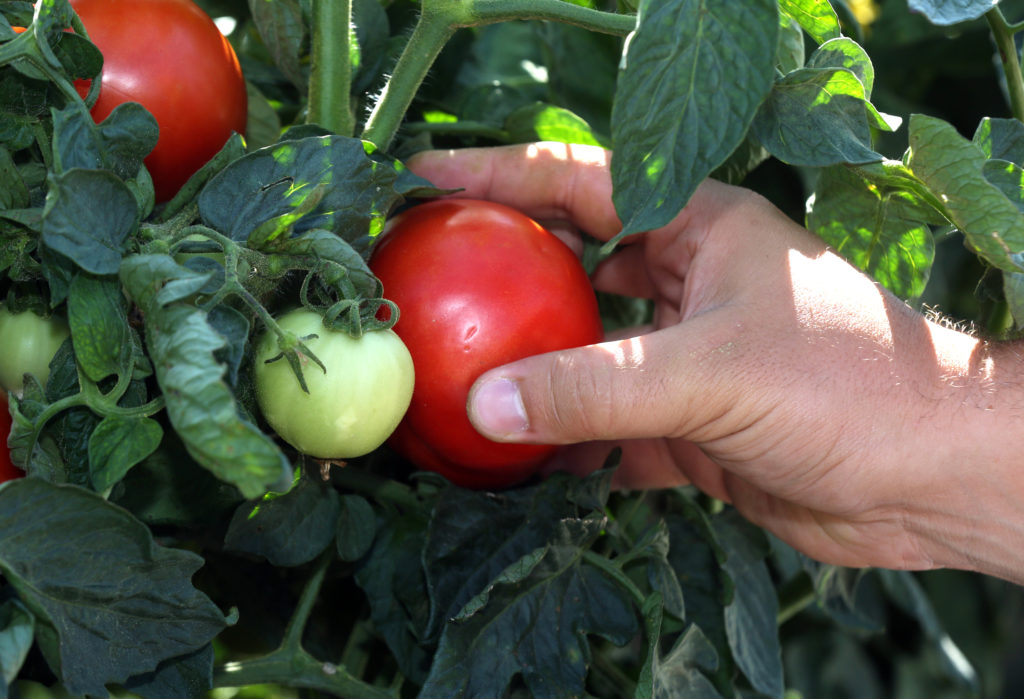
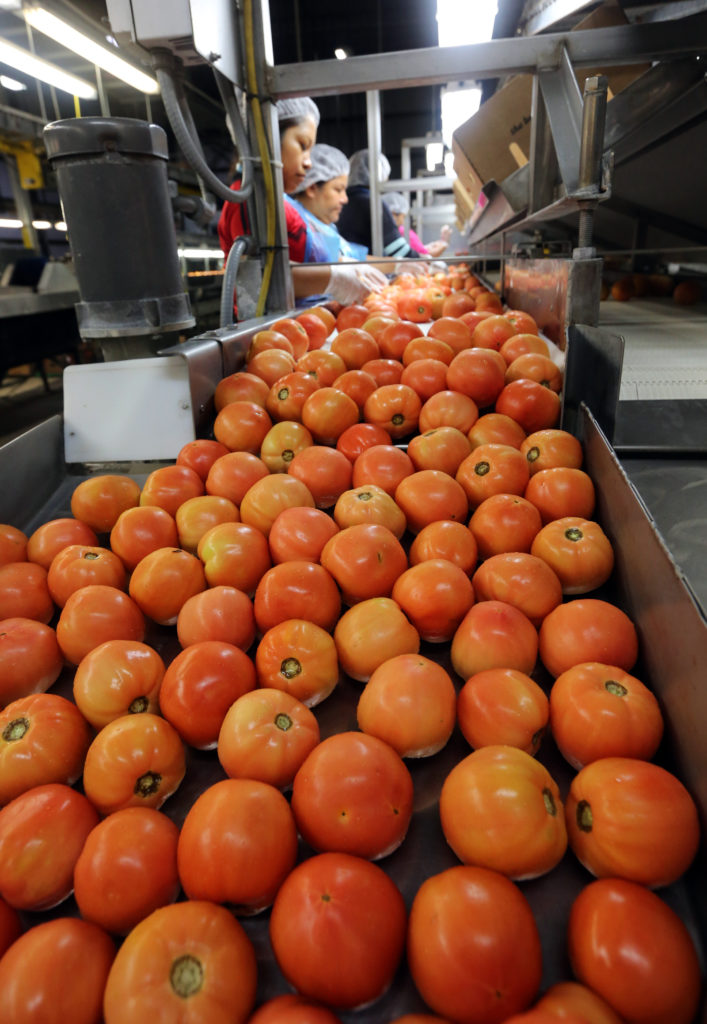
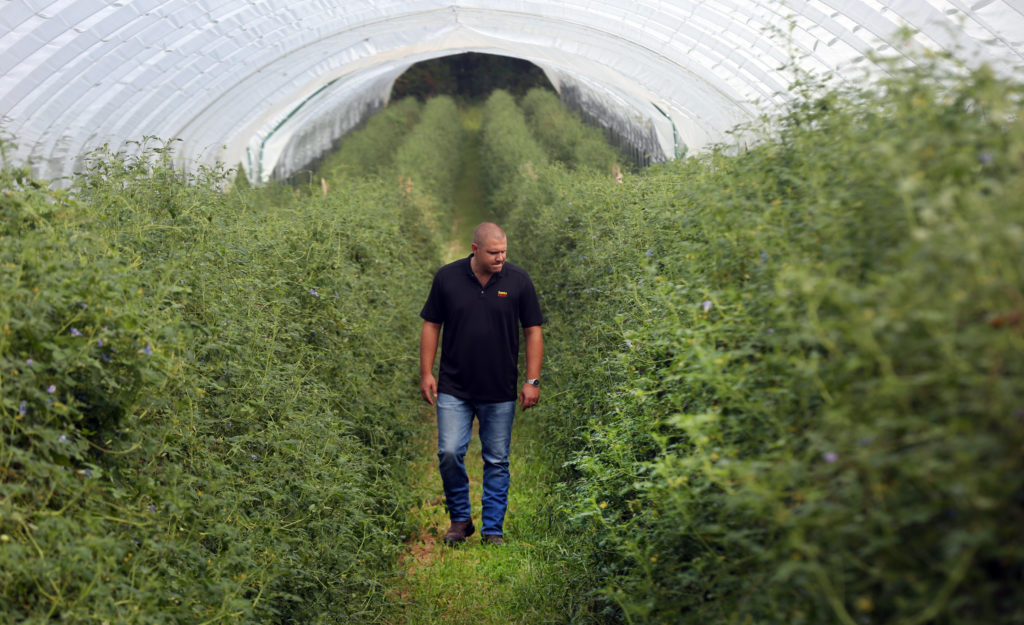
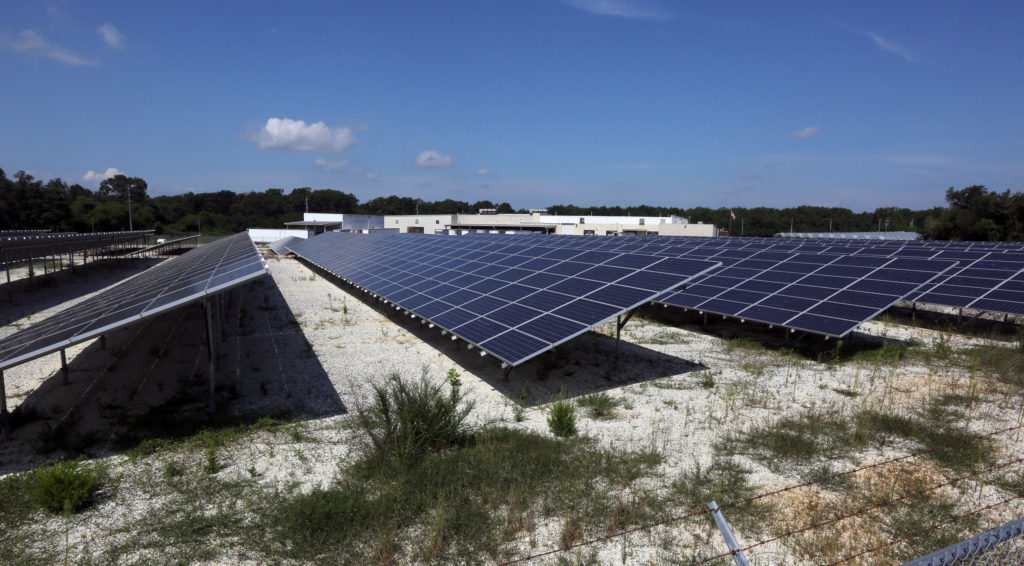
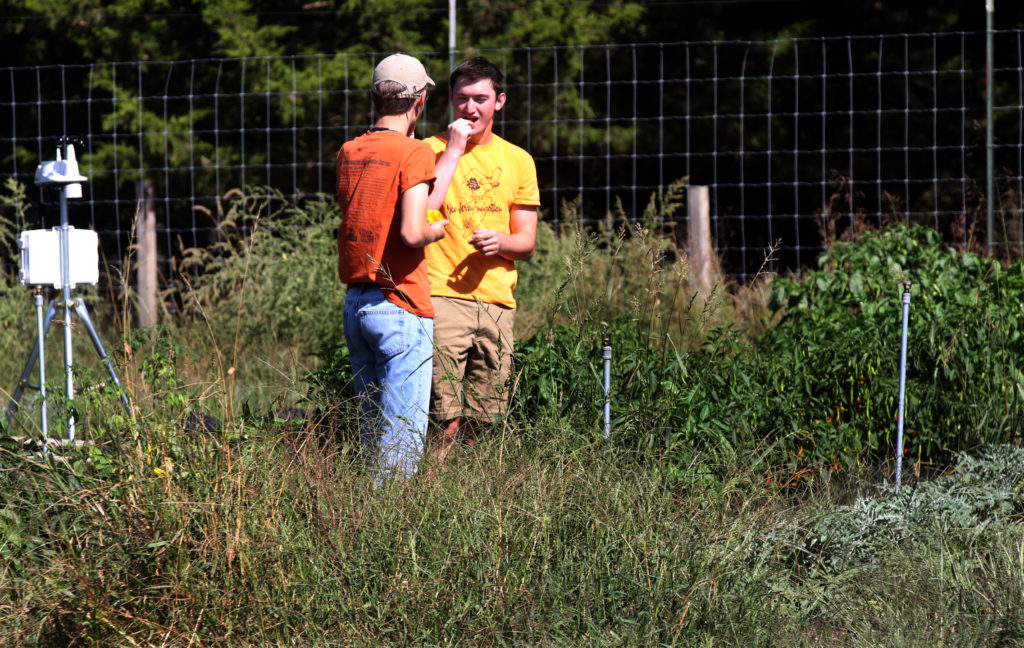
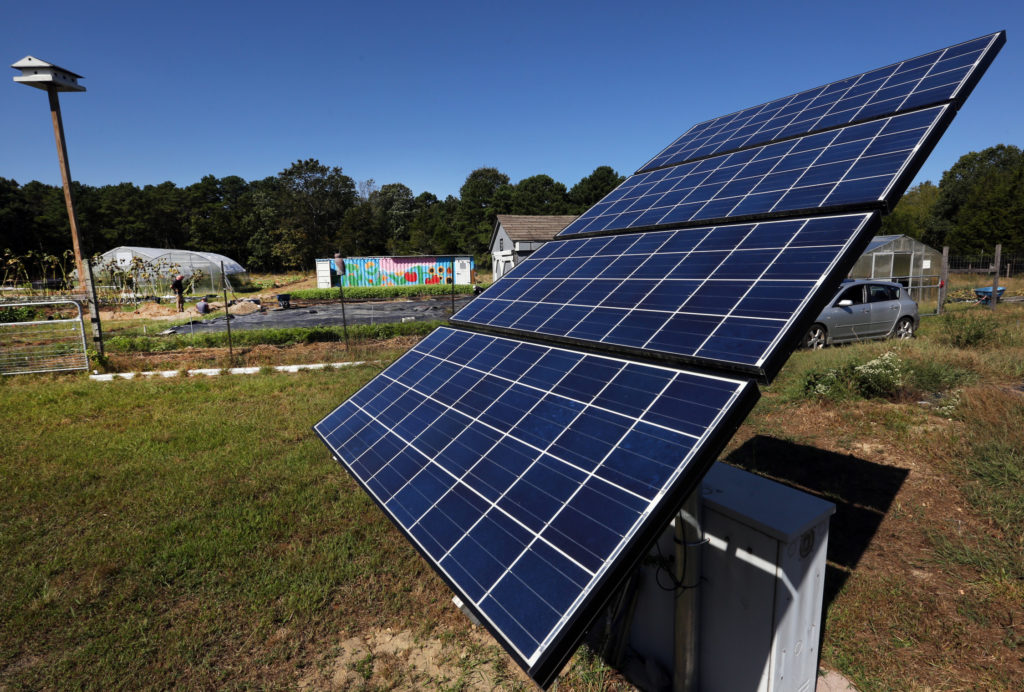
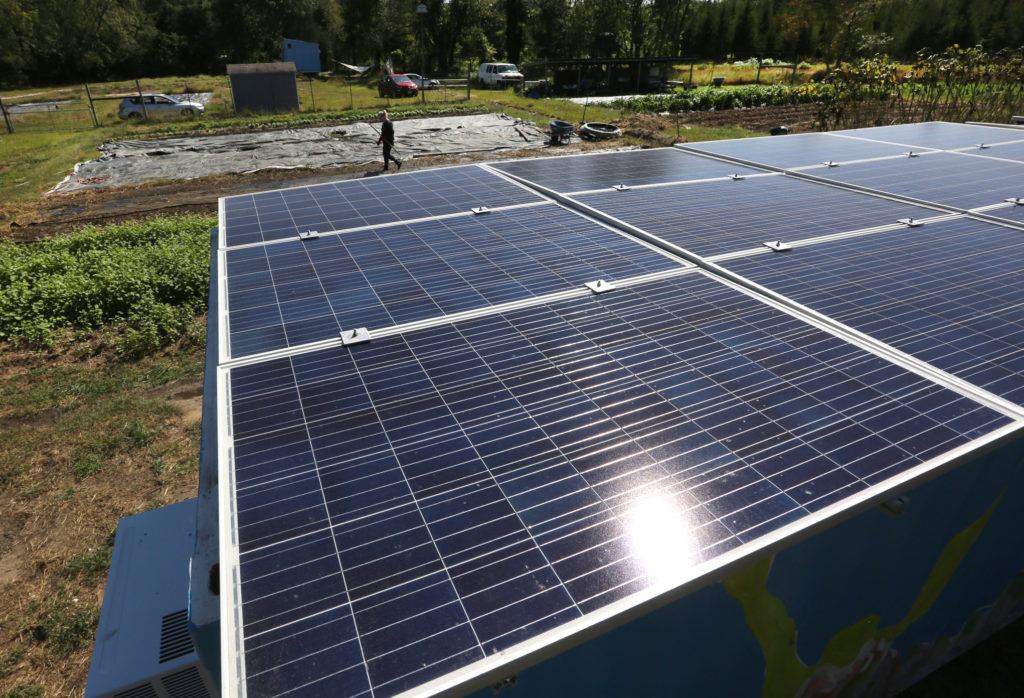
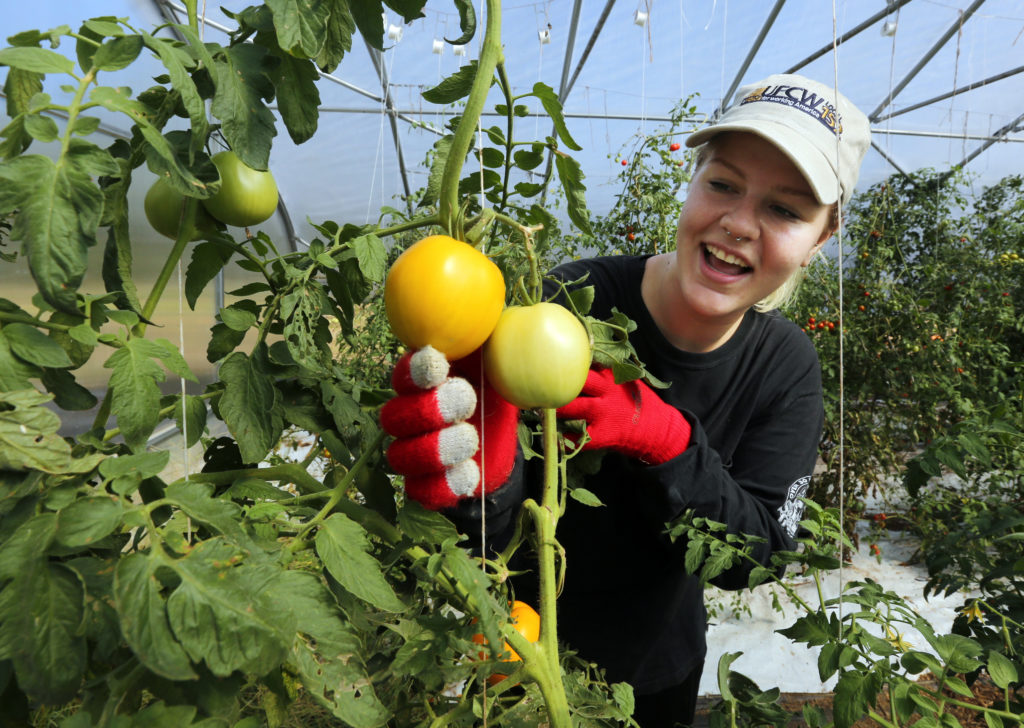
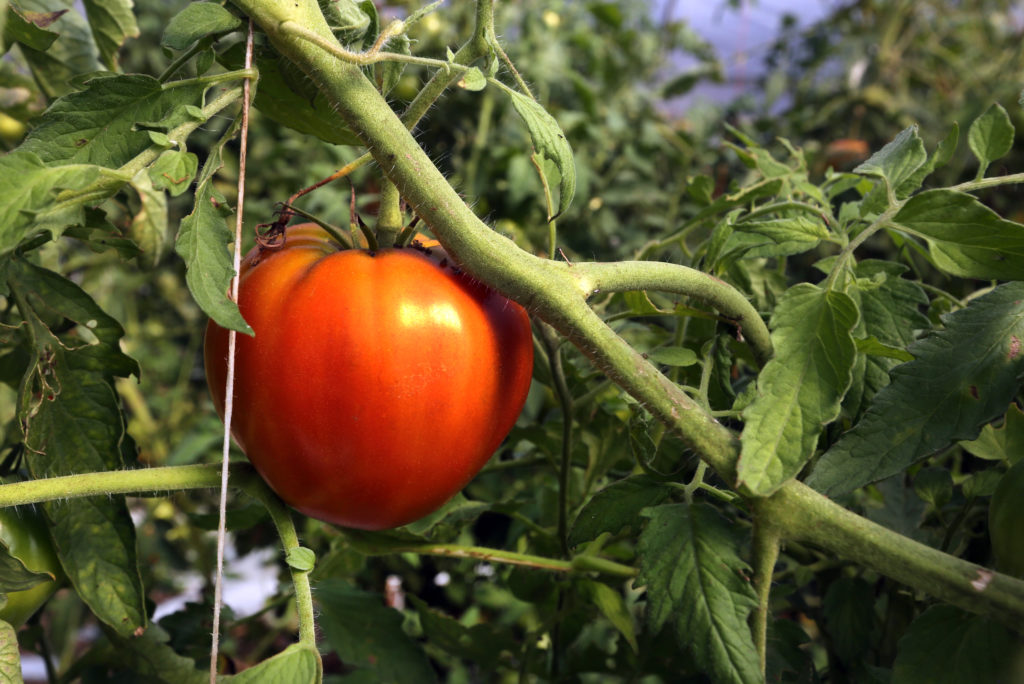
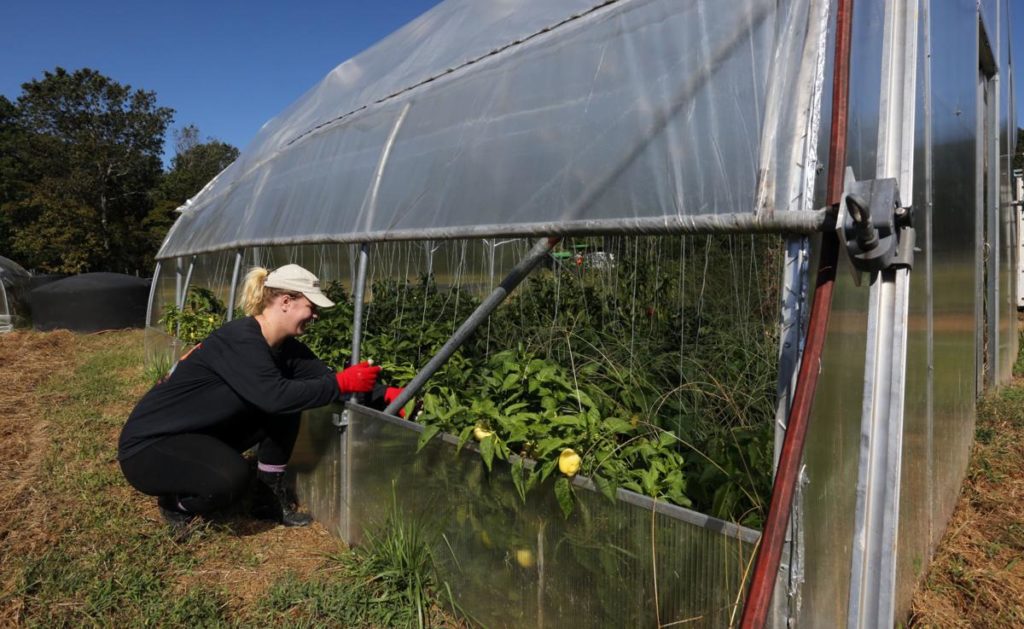
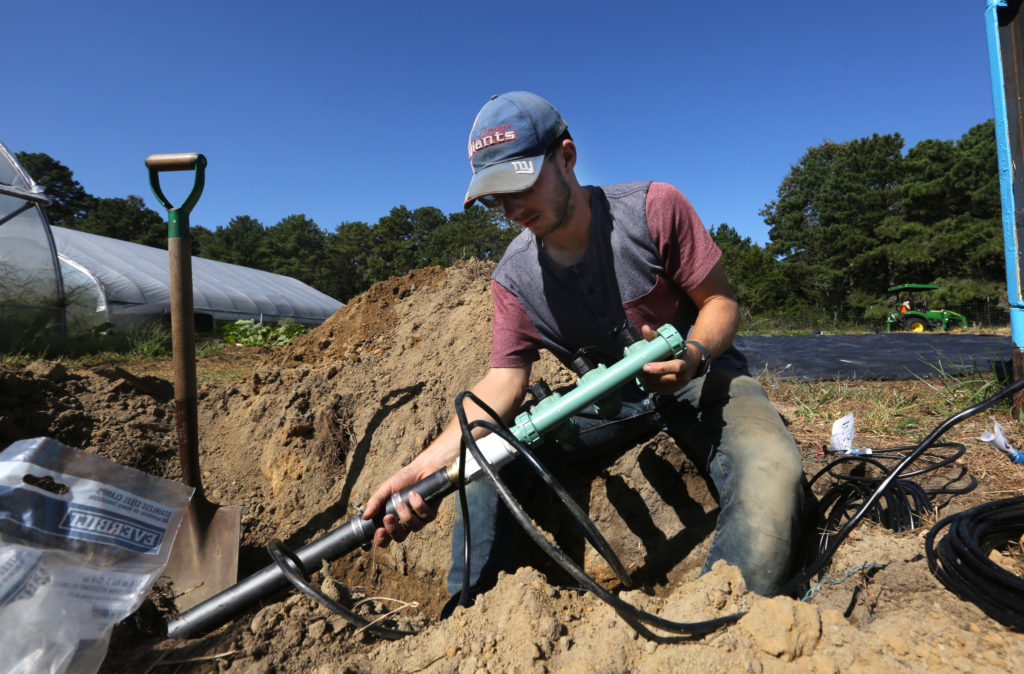
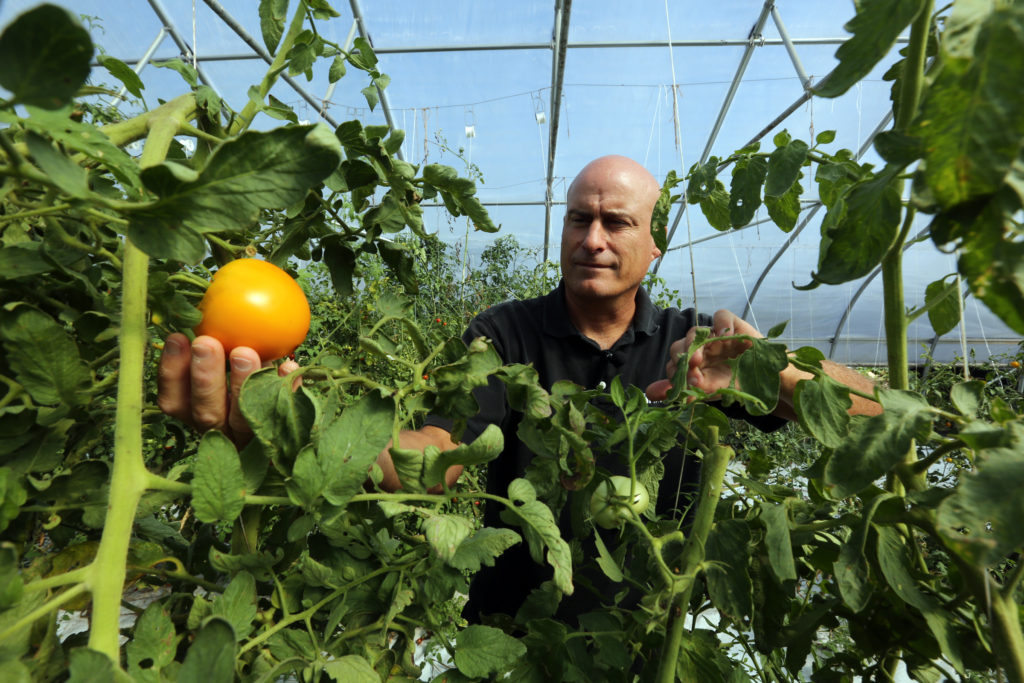
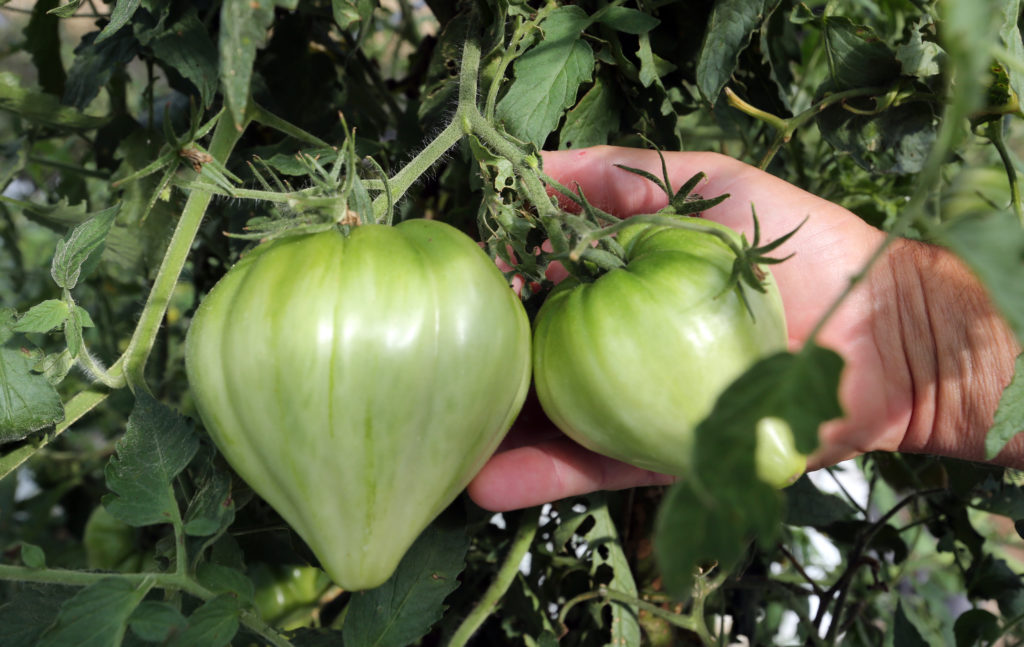
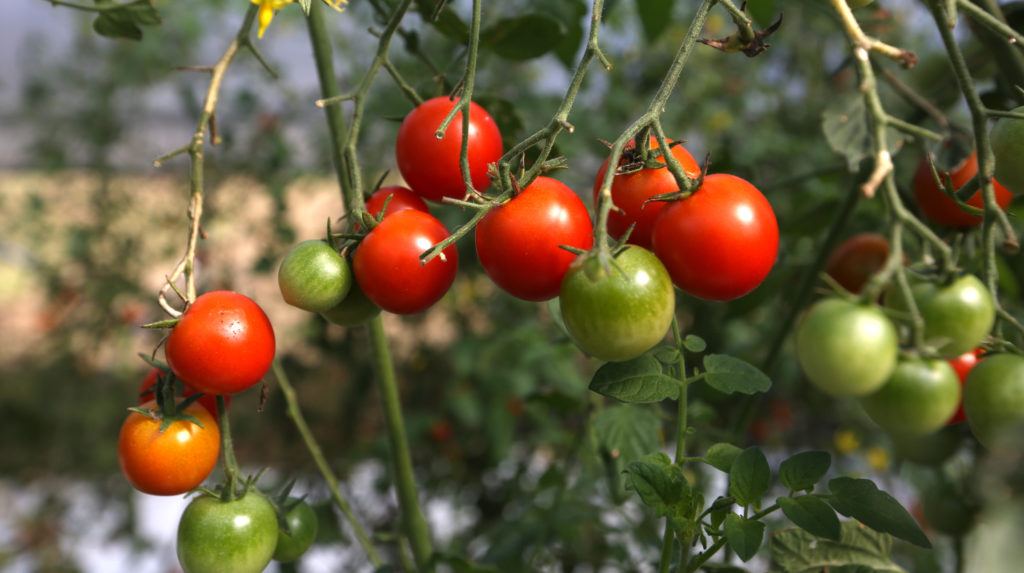
This story was produced in collaboration with the New Jersey Sustainability Reporting Hub project. It was originally reported by Vernon Ogrodnek for the Press of Atlantic City, and may be re-distributed through the Creative Commons License, with attribution.
